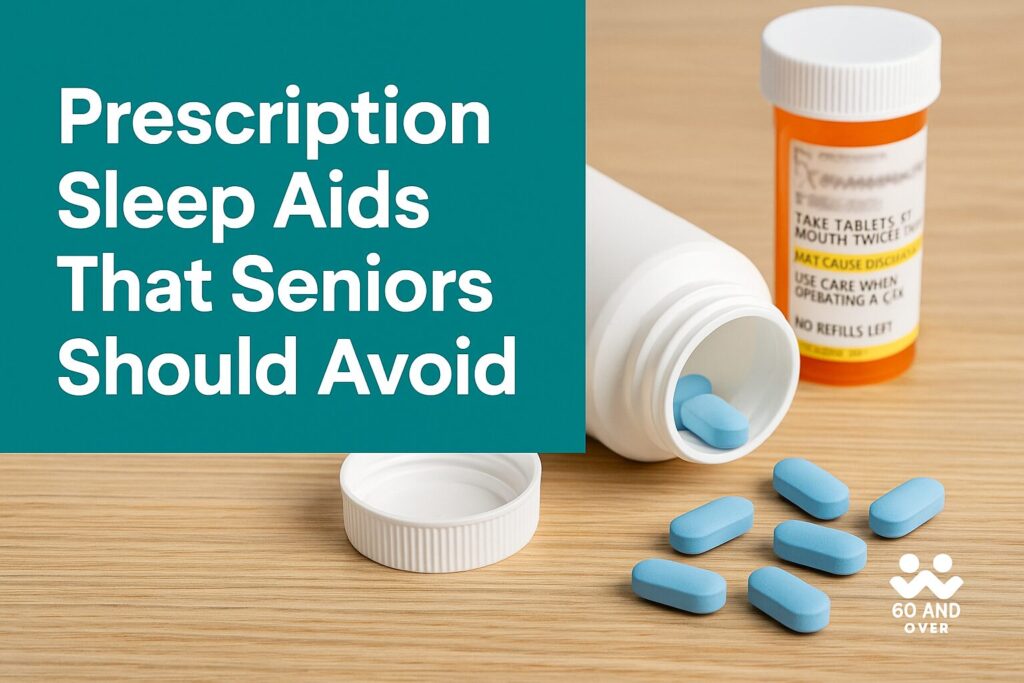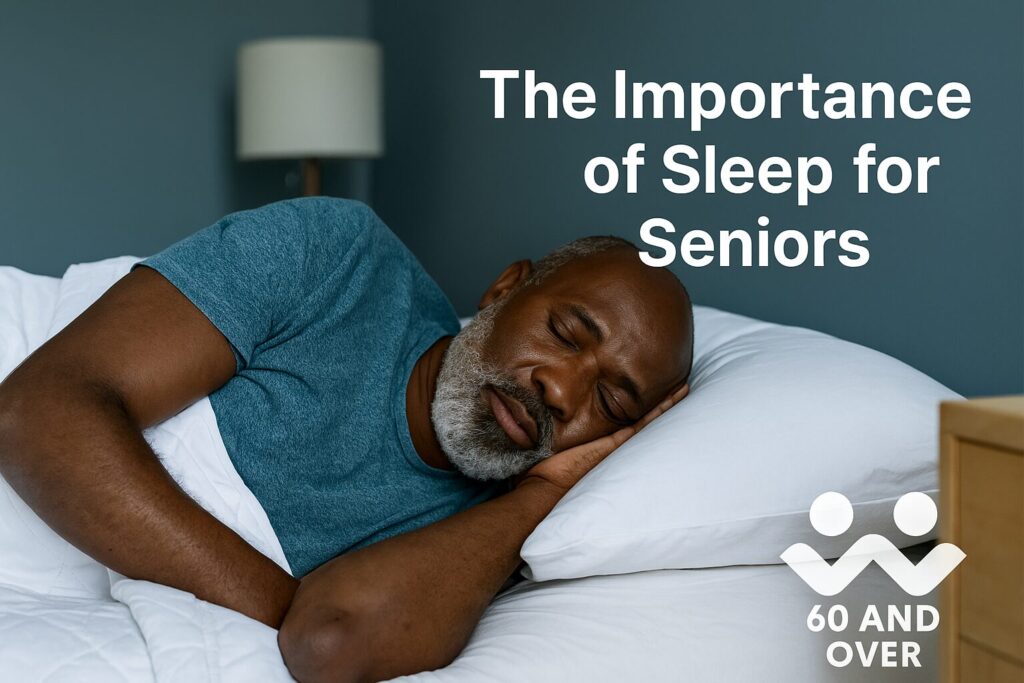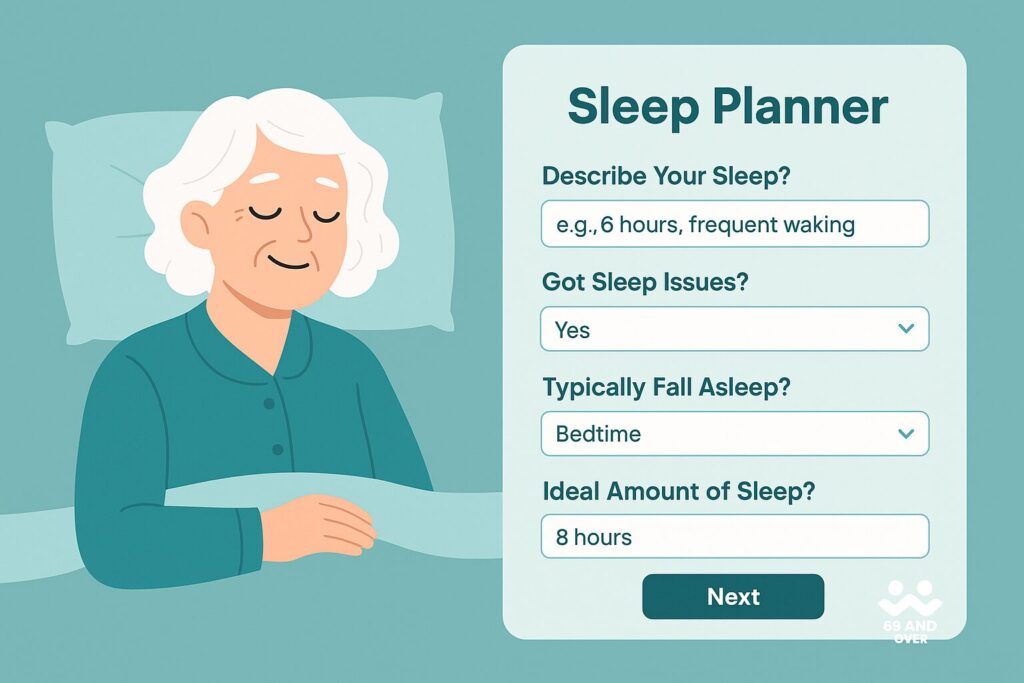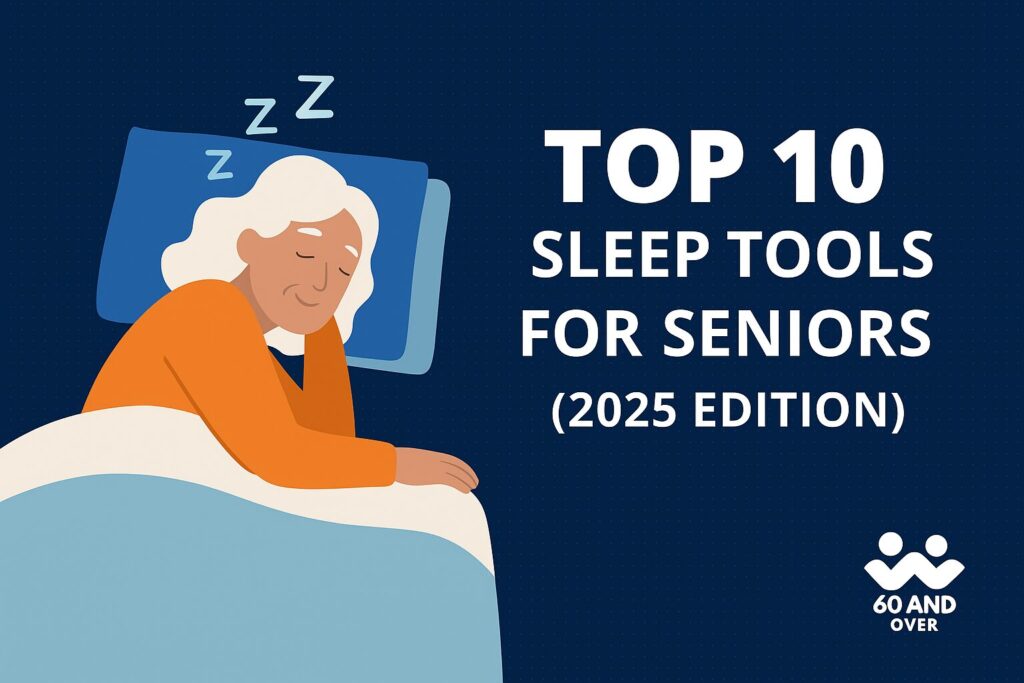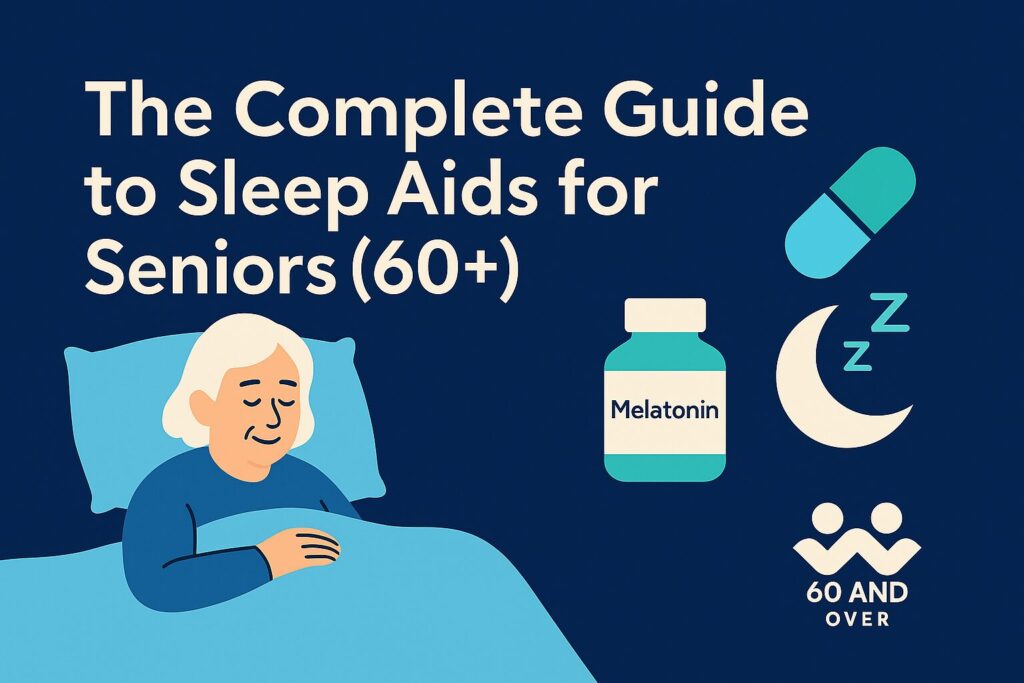High-Risk Medications and Safer Alternatives for Older Adults
Insomnia is common among older adults, but not all treatments are safe for people over 60. Many prescription sleep medications can increase the risk of falls, confusion, memory problems, and dangerous drug interactions. While some options (like low-dose doxepin or ramelteon) are considered safer, others are best avoided by seniors.
This guide highlights the prescription sleep aids most older adults should stay away from — and provides safer alternatives for improving sleep.
Disclaimer: The information on this page is for educational purposes only and is not a substitute for professional medical advice. Sleep medications and supplements may affect seniors differently. Always talk to your doctor or healthcare provider before starting, stopping, or changing any sleep aid or supplement.
Why Some Sleep Aids Are Riskier for Seniors
With age, the body processes medications differently. The liver and kidneys may break down drugs more slowly, leading to stronger or longer-lasting effects. At the same time, older adults are more vulnerable to dizziness, sedation, and balance problems.
This combination makes many prescription sleep medications unsafe for seniors, even if they worked well earlier in life.
Benzodiazepines (Valium, Ativan, Restoril, Halcion)
What they are: Benzodiazepines are anti-anxiety medications sometimes prescribed for insomnia. Common names include diazepam (Valium), lorazepam (Ativan), temazepam (Restoril), and triazolam (Halcion).
Why they’re risky for seniors:
- Strong sedative effects can cause falls and fractures.
- Increase risk of confusion, delirium, and memory impairment.
- Can be addictive and cause withdrawal symptoms when stopped.
- Linked to higher dementia risk when used long-term.
Bottom line: These are generally considered inappropriate for older adults.
Z-Drugs (Ambien, Lunesta, Sonata)
What they are: Z-drugs (zolpidem, eszopiclone, zaleplon) are a newer class of sleep aids often thought to be safer than benzodiazepines.
Why they’re risky for seniors:
- Still cause morning grogginess and balance issues.
- Increase risk of falls, car accidents, and confusion.
- Can cause unusual behaviors like sleepwalking or sleep driving.
- Not recommended for long-term use in any age group, especially older adults.
Bottom line: Z-drugs are slightly safer than benzodiazepines but still pose significant risks for seniors.
Barbiturates (Seconal, Nembutal)
What they are: Once widely used, barbiturates (such as secobarbital and pentobarbital) are powerful sedatives.
Why they’re risky for seniors:
- High risk of overdose, even at low doses.
- Dangerous interactions with alcohol and other medications.
- Cause strong dependence and withdrawal symptoms.
Bottom line: Barbiturates are almost never prescribed today for insomnia — and should be avoided entirely by seniors.
Antihistamines Used as Sleep Aids (Diphenhydramine, Doxylamine)
What they are: These are common ingredients in OTC “PM” sleep products but are sometimes used in prescription combinations. Examples include diphenhydramine (Benadryl, Tylenol PM) and doxylamine (Unisom).
Why they’re risky for seniors:
- Cause strong anticholinergic effects, leading to dry mouth, constipation, urinary problems, and confusion.
- Long-term use linked to increased dementia risk.
- Strong sedative effects increase fall risk.
Bottom line: Antihistamines are poor choices for seniors and should be avoided.
Muscle Relaxants and Other Sedating Drugs
Some medications not designed as sleep aids are still sedating. Examples include cyclobenzaprine (Flexeril), certain antipsychotics, and older antidepressants (like amitriptyline) used off-label for sleep.
Why they’re risky:
- Cause heavy sedation, dizziness, and low blood pressure.
- Increase fall risk and morning grogginess.
- Not effective long-term for sleep.
Bottom line: These should only be used for their intended conditions, never as routine sleep aids for seniors.
Safer Alternatives for Seniors
While many prescription sleep medications are risky, there are safer approaches:
- Low-dose doxepin (3–6 mg): Specifically FDA-approved for insomnia in older adults, with minimal side effects.
- Ramelteon (Rozerem): Mimics melatonin and is non-habit forming.
- Melatonin supplements (0.3–2 mg): Helpful for sleep onset and circadian issues.
- Magnesium: Supports relaxation and muscle calm.
- Cognitive Behavioral Therapy for Insomnia (CBT-I): The gold-standard non-drug treatment.
Key Side Effects Seniors Should Watch For
No matter the sleep aid, seniors should monitor for:
- Morning grogginess or confusion
- Dizziness or balance problems
- Memory lapses or unusual behaviors
- Worsening of depression or mood issues
Any of these side effects warrant a conversation with a doctor.
Conclusion
Prescription sleep aids can seem like an easy fix, but many are unsafe for older adults. Benzodiazepines, Z-drugs, barbiturates, and sedating antihistamines carry high risks of falls, confusion, and dependence.
Safer options — like low-dose doxepin, ramelteon, melatonin, and CBT-I — can help seniors get better rest without jeopardizing health and independence.
For older adults struggling with sleep, the best step is to review all medications with a doctor and consider safer, long-term strategies first.
Prescription Sleep Aids That Seniors Should Avoid: Frequently Asked Questions
Q: Why are some prescription sleep aids unsafe for seniors?
A: Seniors process medications more slowly, making them more sensitive to sedative effects. This increases risks of falls, confusion, memory problems, and dangerous drug interactions.
Q: Which prescription sleep aids should seniors avoid?
A: High-risk options include benzodiazepines (Valium, Ativan, Restoril), Z-drugs (Ambien, Lunesta, Sonata), barbiturates, and sedating antihistamines like diphenhydramine (Benadryl, Tylenol PM).
Q: Are Z-drugs like Ambien safer than benzodiazepines?
A: Z-drugs are slightly safer but still increase risks of falls, confusion, and unusual behaviors like sleepwalking. They are not recommended for long-term use in older adults.
Q: Why are antihistamines like Benadryl a problem for seniors?
A: Diphenhydramine and similar drugs have strong anticholinergic effects, causing dry mouth, constipation, urinary issues, and increased dementia risk with long-term use.
Q: What are safer alternatives to prescription sleep aids for seniors?
A: Safer options include low-dose doxepin, ramelteon, melatonin, magnesium, and non-drug therapies such as CBT-I (Cognitive Behavioral Therapy for Insomnia).

